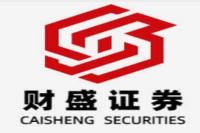US Slaps Tariffs on Chinese Aluminum Food Containers: A Deep Dive into the Trade Dispute
Meta Description: Navigating the complex world of US-China trade disputes. This in-depth analysis explores the recent anti-dumping and countervailing duty (CVD) investigations targeting Chinese aluminum food containers, examining the implications for businesses and consumers. Learn about the specific tariffs, affected companies (like Henan Aluminium Corporation and Zhejiang Acumen Living Technology), and the potential long-term effects.
This isn't just another news story about trade wars; it's a crucial examination of the intricacies of international commerce, specifically the clash between Chinese manufacturers and US import regulations. The recent anti-dumping and countervailing duty (AD/CVD) investigations launched by the US Department of Commerce (DOC) against Chinese-made disposable aluminum containers—think those handy foil trays and pans you find at your local supermarket—have sent shockwaves through the industry. The initial rulings, with staggering tariffs imposed on companies like Henan Aluminium Corporation and Zhejiang Acumen Living Technology, paint a picture of escalating trade tensions. But what does this really mean for consumers, businesses, and the global economy? Buckle up, because we’re diving deep into this complex situation, exploring the legal battles, economic implications, and the potential ripple effects felt far beyond the aluminum food container aisle. We’ll unravel the legal jargon, analyze the economic forces at play, and offer insights gleaned from years of experience in international trade law. This isn't just about numbers and percentages; it's about the real-world impact on jobs, prices, and the ever-evolving landscape of global trade. Get ready to understand the intricacies of this significant trade dispute and how it impacts your everyday life, possibly even the next time you grab a takeout order. You won't want to miss this comprehensive analysis!
Anti-Dumping and Countervailing Duties (AD/CVD) on Aluminum Food Containers: A Closer Look
The US Department of Commerce's (DOC) recent actions against Chinese aluminum food containers, falling under the Harmonized Tariff System (HTS) code 7615.10.7125, represent a significant escalation in trade tensions. These aren't just arbitrary actions; they're the result of a formal investigation launched on June 6, 2024, focusing on allegations of both dumping (selling goods below market value) and the provision of government subsidies (countervailing duties). The preliminary rulings, announced on October 22nd, levied hefty tariffs: a whopping 78.12% on Henan Aluminium Corporation and a staggering 312.91% on Zhejiang Acumen Living Technology Co., Ltd., which didn't participate in the response process. Other Chinese producers face the same 78.12% tariff. These numbers aren't just statistics; they represent a significant increase in the cost of these products for US importers and, ultimately, American consumers.
The DOC's investigations are incredibly rigorous. They involve a painstaking review of financial records, production processes, and government support programs. This isn't a quick judgment; it's a deep dive into the complexities of international trade. The final determination, slated for March 4, 2025, will likely be equally thorough, potentially leading to further adjustments to the tariffs based on additional evidence and arguments. Let's not forget the legal challenges that may ensue. The affected Chinese companies might appeal the decision, leading to lengthy court battles and further uncertainty. The whole process is a marathon, not a sprint!
This situation highlights the ongoing friction between the US and China regarding trade practices. The US argues that these tariffs are necessary to protect its domestic aluminum industry from unfair competition. However, China may counter that these actions are protectionist and violate international trade rules. The World Trade Organization (WTO) could eventually play a mediating role if either side files a complaint. The situation is far from resolved and is likely to be a long and complex battle.
Impact on Businesses and Consumers
The impact of these tariffs extends far beyond the aluminum food container industry. US importers will face significantly higher costs, potentially leading to price increases for consumers. This could affect restaurants, food processing companies, and even everyday consumers purchasing groceries—basically anyone using these containers. The increased costs could also lead to a shift in sourcing, with US businesses potentially seeking alternative suppliers from other countries. This could have knock-on effects on those economies, boosting some industries while potentially causing setbacks for others. It's a domino effect, folks! Moreover, Chinese manufacturers will likely feel the pinch, forcing them to adjust their pricing strategies or explore new export markets.
The Role of Henan Aluminium Corporation and Zhejiang Acumen Living Technology
Henan Aluminium Corporation and Zhejiang Acumen Living Technology Co., Ltd. are key players in this dispute. Their varying tariff rates highlight the complexities of the DOC's investigation. Henan Aluminium Corporation, actively participating in the proceedings, received a 78.12% tariff. Conversely, Zhejiang Acumen Living Technology Co., Ltd.'s non-participation resulted in a significantly higher 312.91% tariff. This underscores the importance of cooperating with the DOC investigation. Ignoring the investigation, as Zhejiang Acumen demonstrated, can have severe financial consequences. It’s a harsh lesson, but one that others in a similar situation may learn from.
This case also highlights the importance of transparency and fair trade practices. The high tariffs imposed reflect concerns about dumping and government subsidies. These practices, if proven, can create an uneven playing field and undermine domestic industries. This is a significant issue that continues to be debated and refined within the context of international trade agreements.
Understanding Anti-Dumping and Countervailing Duties
Let's break down the jargon. Anti-dumping duties are tariffs imposed on imported goods sold below their fair market value. These duties aim to level the playing field and prevent foreign producers from undercutting domestic businesses. Countervailing duties, on the other hand, target goods that have received government subsidies in their country of origin. These subsidies can give foreign producers an unfair advantage, and countervailing duties are designed to offset the impact. Both are crucial tools in US trade policy, aiming to prevent unfair trade practices and safeguard American industries. Think of them as the trade police, ensuring fair play in the global marketplace!
Navigating the Legal Landscape
The legal process involved in these investigations is notoriously complex and lengthy. It involves detailed investigations, extensive documentation, and potential legal challenges. This intricate process emphasizes the need for businesses to have a thorough understanding of trade laws and regulations. Getting solid legal representation is crucial, especially in navigating the labyrinthine world of trade disputes. Simply put, this isn’t something you want to DIY!
Frequently Asked Questions (FAQ)
Q1: What are the implications for US consumers?
A1: Higher tariffs likely translate to higher prices for aluminum food containers, potentially affecting the cost of groceries and restaurant meals.
Q2: Can Chinese companies appeal the decision?
A2: Absolutely. Chinese companies have the right to appeal the DOC's preliminary determination, potentially leading to a prolonged legal battle.
Q3: What is the role of the WTO in this dispute?
A3: If either side feels the tariffs violate WTO rules, they can file a complaint, potentially leading to WTO intervention.
Q4: What are the potential long-term effects of this case?
A4: Long-term consequences include potential shifts in global supply chains, increased costs for US consumers, and continued trade tensions between the US and China.
Q5: How can businesses protect themselves from similar situations?
A5: Businesses should engage in thorough due diligence, carefully monitor trade regulations, and seek expert legal counsel to navigate complex trade laws.
Q6: What are the key differences between anti-dumping and countervailing duties?
A6: Anti-dumping duties address goods sold below fair market value, while countervailing duties target goods that have received government subsidies.
Conclusion
The US Department of Commerce's investigation into Chinese aluminum food containers highlights the complexities and heightened tensions in the US-China trade relationship. The significant tariffs imposed underscore the seriousness of alleged unfair trade practices. The ongoing legal battles, potential WTO involvement, and far-reaching economic consequences make this case a crucial reference point for understanding the dynamics of international trade in the years to come. This situation serves as a stark reminder of the intricate challenges and ever-evolving landscape businesses face in the global marketplace. The future will undoubtedly see further developments, and staying informed is paramount for businesses and consumers alike. The aluminum food container case is far from over, and its ripples will be felt for years to come.



